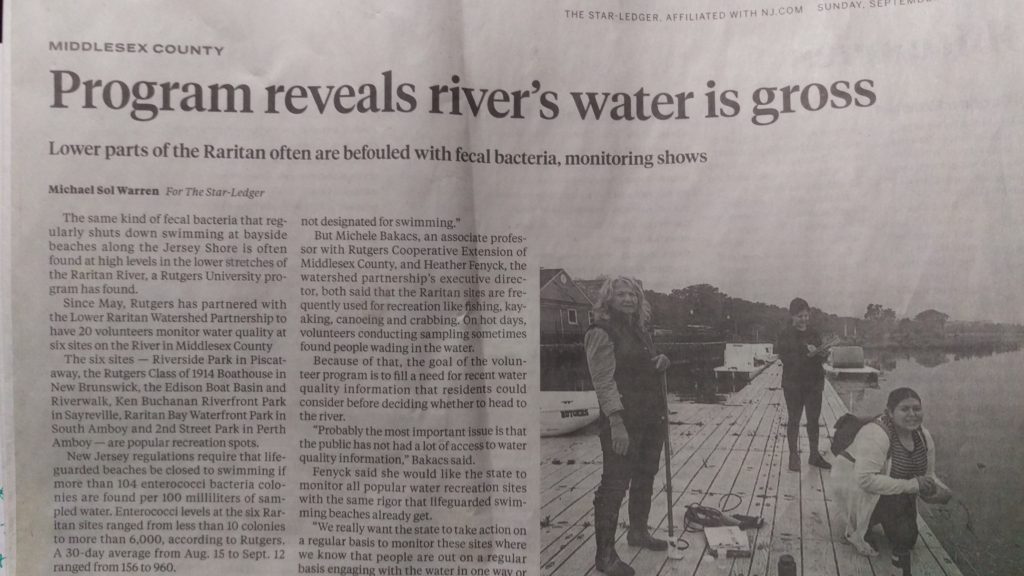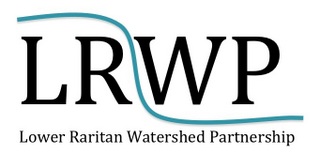Summer Raritan Pathogens Monitoring in the News!
There has been a fair amount of attention to our pathogens monitoring program in the news the last week:
MyCentralJersey.com: https://www.mycentraljersey.com/story/news/local/land-environment/2019/09/17/rutgers-finds-fecal-bacteria-raritan-river/2355088001/
PerthAmboyNow: http://perthamboynow.com/high-levels-fecal-bacteria-found-lower-raritan-2nd-st-park-perth-amboy/
TAPinto Somerville: https://www.tapinto.net/towns/somerville/sections/green/articles/high-levels-of-fecal-bacteria-found-in-lower-raritan-river
Patch.com: https://patch.com/new-jersey/newbrunswick/high-levels-fecal-bacteria-found-lower-raritan-river

We’re not thrilled with the Star Ledger headline, but we’ll take a bit of sensationalism if it prompts action to clean up the Raritan 🙂
We want to remind folks that our monitoring program is designed to provide the public with access to water quality data so they can make informed choices about whether to fish, kayak, swim or otherwise recreate around the water. These are weekly “snapshots” of water quality – captured for a very changeable body of water. It is true that the pathogens numbers (enterococci) for recent weeks are not what we would want to see. But we have not run analyses, and there are many seasonal, tidal, off-shore and site-specific explanations for problems that are not described. Basically there is much more to report about the sites and the data that the reporters miss.
We also want to remind folks of the great number of ways that they can reduce their own personal contribution to local water quality issues. For example: homeowners can minimize or remove hard surfaces on their property, avoid using fertilizers or pesticides on lawns, mow less frequently or choose native plants over lawns, increase riparian buffers around streams and rivers, and work to improve habitat connectivity.
Want to help bring more attention to the Raritan? Please join us, and encourage family, teacher friends and others to join us for our “Facebook Live” event on Thursday October 17. We will broadcast starting at 10 am from the Rutgers Agriculture and Natural Resources facebook page. Registration info here:
